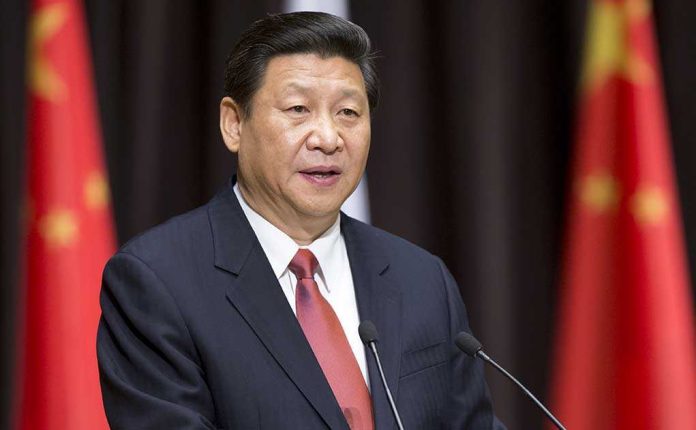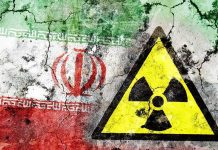
Ukraine’s outright rejection of China as a postwar security guarantor exposes the deepening geopolitical divide and raises urgent questions about Communist influence over Europe’s future security architecture.
Story Highlights
- Ukraine’s President Zelensky publically rebuffs China as a credible security guarantor, citing Beijing’s support for Russia and lack of aid to Ukraine.
- China responds with outrage, insisting its role is objective, while Russia pushes for China’s inclusion to maintain leverage over Ukraine.
- The failed Budapest Memorandum and China’s vague peace proposals fuel Kyiv’s skepticism of empty international guarantees.
- This diplomatic rift underscores the risks of globalist agendas and the growing East-West divide affecting U.S. interests and allies.
Zelensky’s Public Rejection of China as Security Guarantor
On August 22, 2025, Ukrainian President Volodymyr Zelensky delivered a categorical public rejection of China as a potential postwar security guarantor for Ukraine. Zelensky cited China’s ongoing economic and technological support for Russia, including providing key drone components, and Beijing’s failure to offer meaningful assistance to Ukraine during its time of greatest need. This direct rebuke triggered a wave of outrage from Chinese officials and state media, who insisted China has maintained an “objective and constructive” position throughout the crisis. Russia, meanwhile, had proposed a security guarantee framework involving all permanent UN Security Council members—including China—to shape the postwar order in its favor.
This standoff highlights the growing skepticism in Kyiv toward any international security guarantee not backed by concrete commitments. The memory of the 1994 Budapest Memorandum, in which Ukraine gave up its nuclear arsenal in exchange for unenforced security assurances from the U.S., U.K., and Russia, looms large. China, while endorsing the memorandum’s principles, never signed nor issued binding guarantees. Instead, China has consistently avoided condemning Russian aggression, opting for a vague 12-point peace plan that failed to address Ukraine’s core security concerns or acknowledge Russia as the aggressor. This pattern has reinforced Ukraine’s reliance on Western partners whose support has proven tangible on the battlefield.
China’s Outrage and Russia’s Geopolitical Maneuvering
China’s response was swift and defensive. The Foreign Ministry and state media insisted on China’s “open and aboveboard” approach and reiterated willingness to play a “constructive role.” Yet, these claims are undermined by China’s continued purchase of Russian oil, technological transfers, and reluctance to criticize Moscow’s invasion. Russia, for its part, seeks to leverage China’s involvement to legitimize its own continued influence over Ukraine and dilute Western leverage. This maneuvering places the United Nations Security Council at the center of the debate, but internal divisions—primarily between Russia and China on one side and the West on the other—have prevented consensus or meaningful action.
Diplomatic friction between Ukraine and China has only increased, with no movement toward including China in any credible security guarantee framework. Ukraine’s position is clear: only those who have materially supported its defense and sovereignty can be trusted with its future security. As a result, Russia’s repeated proposals for a Security Council-based guarantee are met with suspicion, while China’s so-called neutrality is viewed as little more than a smokescreen for its alliance with Moscow. For American conservatives, this episode is a stark reminder of the dangers of trusting Communist regimes and the folly of globalist frameworks that erode genuine national sovereignty.
Historical Lessons and the Failure of International Guarantees
Ukraine’s resistance to Chinese involvement is deeply rooted in the historical failure of international agreements to protect its sovereignty. The Budapest Memorandum stands as a cautionary tale: in exchange for surrendering its nuclear deterrent, Ukraine received only paper promises, which proved worthless when Russian tanks rolled in. China’s endorsement of the memorandum’s principles, absent any binding commitment, has done nothing to reassure Ukrainian leaders. Moreover, China’s 2023 peace plan was dismissed across the West as vague and ineffective, failing to address any of Ukraine’s security or territorial concerns.
This legacy has shaped Kyiv’s insistence on enforceable guarantees from proven allies. The divide between rhetoric and reality—especially from authoritarian regimes with their own strategic interests—serves as a warning against repeating past mistakes. For U.S. policymakers and voters alike, the episode highlights why American strength and clarity are essential in supporting allies and deterring adversaries who exploit multilateral institutions for their own gain.
Impact on Global Security and Conservative Values
The immediate result of Zelensky’s rejection is a further split between Ukraine and China and the hardening of Ukraine’s alliance with Western powers. In the short term, diplomatic tensions have risen, and the international debate over Ukraine’s future has become even more polarized. Longer-term, China is unlikely to play a meaningful role in any Ukraine settlement, and the precedent set here may shape future security arrangements across post-conflict zones.
China Bristles as Zelensky Rejects ‘Security Guarantees’ from Russia-Allied Communists https://t.co/lCwGUryl6F
— Breitbart London (@BreitbartLondon) August 23, 2025
For the United States and its conservative base, this episode underscores the real-world costs of globalist illusions and the necessity of defending national sovereignty and traditional alliances. The continued support of Communist regimes for one another—even in the face of blatant aggression—should serve as a wake-up call against the erosion of American influence and the dangers of appeasing adversaries. As the world’s security order is redrawn, vigilance against Communist and globalist encroachment remains essential to protecting constitutional values, national identity, and the hard-won peace that comes only from strength and principled leadership.
Sources:
China unlikely to give Ukraine security guarantees despite Russia’s wishes
China bristles at exclusion after Zelensky rejects security guarantee
Ukraine: Zelenskiy rejects Chinese security guarantees
Will China be Ukraine’s security guarantor? Unlikely, despite Russia’s wishes



